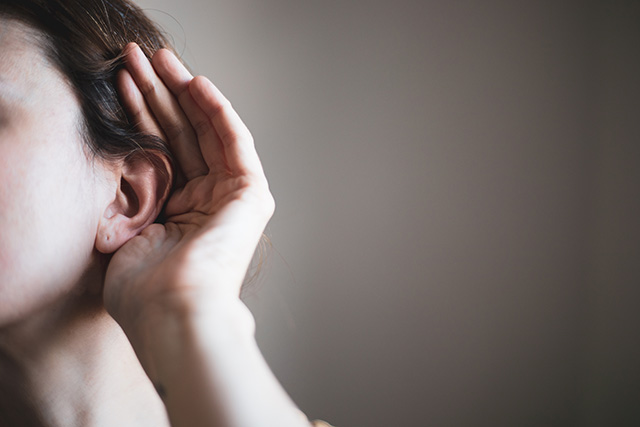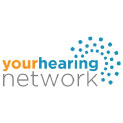Hearing loss happens gradually over time, often going unnoticed – and untreated – until it becomes severe. But difficulty to hear can set off a cascade of issues, including loneliness, fatigue and reduced job performance.
The inability to understand a loved one’s words or to participate in a casual conversation with friends can lead to social isolation, and when diminished hearing makes it difficult to communicate with doctors or hear an alarm, the effects can be downright dangerous.
Furthermore, research shows that hearing loss can be connected to depression, heart health and forms of dementia, so it’s important take your ear health seriously.
Hearing Loss and Dementia
What many considered an inevitable yet mostly frustrating part of the aging process was cast in a new light when Johns Hopkins School of Medicine research by Dr. Frank Lin showed hearing loss as a risk factor for dementia.
Researchers tracking adults over time found that moderate hearing loss tripled the risk for dementia, while those with severe hearing loss were five times as likely to develop the condition. While the link between the conditions is still being explored, the social isolation that stems from hearing loss may be a factor, as it is known to be associated with an increased risk of dementia.
About 48% of Americans experience some level of hearing loss, but most do not seek treatment right away. With an average of 7 years passing before an individual seeks help for diminished hearing, the data suggests a missed window during which individuals might be able to delay or avoid cognitive decline. The use of hearing aids and other hearing loss treatments could prevent or interrupt the complex process that links the conditions.
The Connection to Heart Health
As the leading cause of death in the United States, heart disease claims a life every 36 seconds, according to the Centers for Disease Control and Prevention. So how does your heart affect your ears? It’s all about good circulation. When your blood is flowing properly, your ears are getting what they need to stay healthy.
Sudden hearing loss can be an early sign of vulnerability to stroke, one of the most common forms of cardiovascular disease. Studies also suggest that low-frequency hearing loss could be an indicator of current or potential disease.
Listen to what your ears are telling you. If you or a loved one experiences sudden hearing loss or the onset of low-frequency hearing loss, have a doctor evaluate the situation as soon as possible.
Hearing Loss as a Side Effect of Cancer Treatment
Age is the strongest predictor of hearing loss, with the greatest amount of loss experienced by those in the range of 60 to 69 years, but other causes include noise exposure, auditory tumors and drug side effects.
Treatments such as chemotherapy and head or neck radiation used to combat cancer can lead to sensorineural hearing loss, the kind that occurs when there is an issue in either the inner ear or the auditory nerve that delivers sounds to the brain. A landmark study revealed that 61% of patients ages 8 months to 23 years receiving cancer treatment reported hearing loss. If you are being treated for cancer, make sure to monitor ear health to catch hearing loss early.

Reduced Job Performance
Struggling to hear a coworker in a meeting and finding it difficult to communicate effectively at work can lead to distress and impact job performance, particularly when left untreated. This can lead to irritability and a diminished sense of well-being.
As workers age, they may acquire hearing loss, but the connection between hearing and job performance isn’t restricted to older workers. Young people are exposed to potentially damaging noise from loud concerts, sports events and the improper use of audio devices. Certain occupations such as working in public safety, manufacturing and the military come with a greater likelihood of dangerous noise exposure while on the job, making it especially important to wear proper ear protection.
Fatigue From Struggling to Hear
While it’s common to feel tired after listening to someone speak for a long time in a meeting, fatigue sets in much faster when any level of hearing loss is present. Listening requires more cognitive resources when hearing is diminished, and that allocation of brainpower can be greater when conditions aren’t ideal. Being in a noisy environment or sitting through a conference may require more effort, tax the brain, and therefore lead to more tiredness.
An audiologist can help to break this cycle and ease fatigue by providing you with a solution to treat your level of hearing loss and make listening easier.
A Link to Depression
Those who experience hearing loss or know someone with hearing problems may observe how isolating it can be to face the constant challenge of being unable to communicate well. During a free-flowing exchange, topics change quickly and voices come from multiple directions.
The inability to participate in fluid conversations about everyday life can lead to anxiety about social gatherings and avoidance of them in the future, leaving those with hearing loss feeling deep loneliness.
The Importance of Early Treatment
With connections to dementia, decreased well-being, and serious illnesses such as depression, hearing loss can clearly take a mental and physical toll if left untreated. Related cognitive decline and other unwanted conditions may be delayed or avoided with early treatment, such as the use of hearing aids. Rather than accept hearing loss as a natural part of the aging process, have an audiologist assess your hearing as the first step.
Learn more about hearing loss solutions.
One Thought on “Why Ear Health Is Important”
Leave A Comment
Comments are subject to moderation and may or may not be published at the editor’s discretion. Only comments that are relevant to the article and add value to the Your AAA community will be considered. Comments may be edited for clarity and length.















I go to Bronx V A M C. They have a audio clinic. I am service connected with 10% disabilities on my Hearing. I have a Aid.